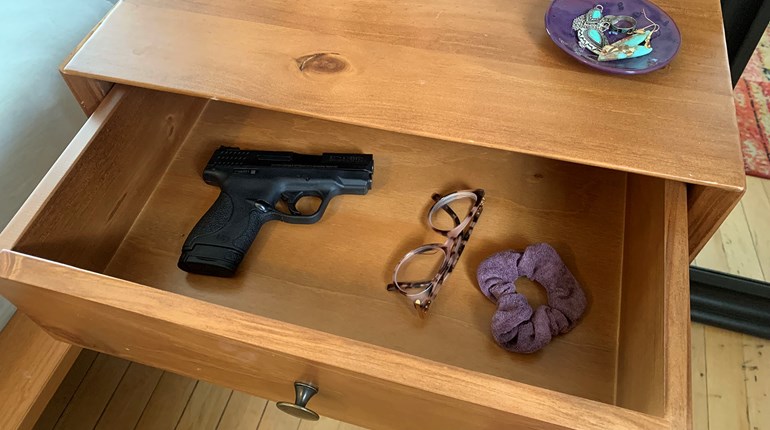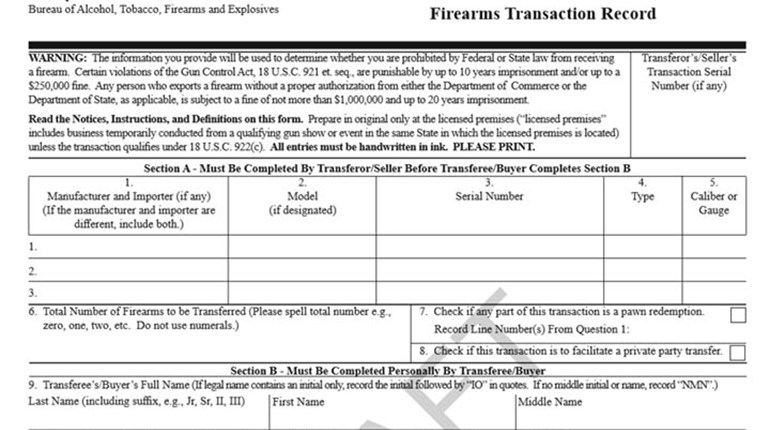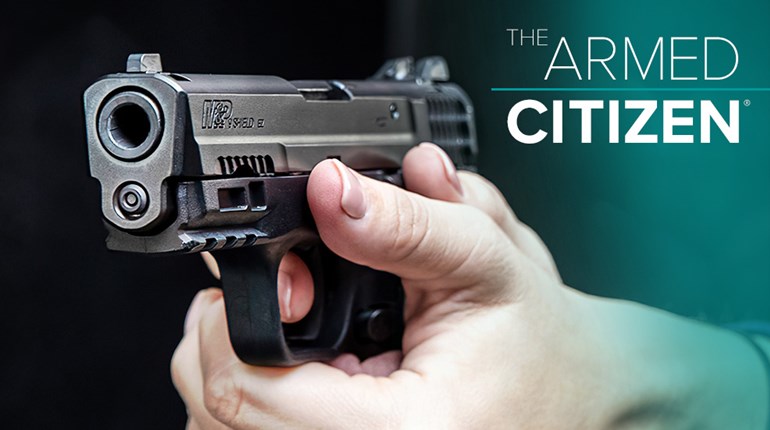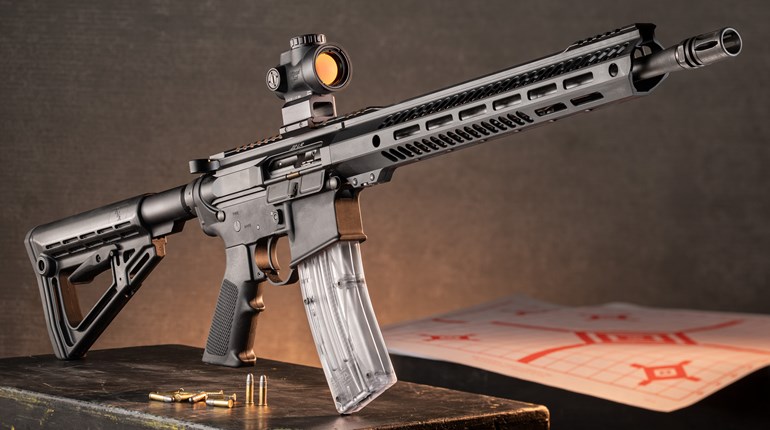
California Gov. Gavin Newsom, seated, hands Assemblyman Phil Ting, D-San Francisco, second from right, a copy of his bill that Newsom signed at the Capitol in Sacramento, Calif., Friday, Oct. 11, 2019. The law allows employers, co-workers and teachers to seek gun violence restraining orders for people they believe to be a danger to themselves or others. Ting's measure was one of more than a dozen gun control bills the governor signed.
When a state’s lawmakers and government officials can’t even decipher the maze of gun laws they have created, it’s probably a good sign that there’s too much gun control on the books. Such is the case in California, where a recent change in state law passed by anti-gun lawmakers inadvertently lowered the cost of a “Basic Ammunition Eligibility Check” from $19 to $1. Unaware of the change until it was brought to their attention by gun-rights supporters, the California Department of Justice (DOJ) collected the $19 fee in contravention of state law.
Since July 1, 2019, gun owners in the Golden State have been required to undergo a background check each time they purchase ammunition. The program has been a disaster. In December, The Sacramento Bee reported that tens of thousands of law-abiding Californians have been improperly denied ammunition purchases under the program, while only 101 were prohibited persons who were rejected. According to the report, “[b]etween July 1 and November, nearly one in every five ammunition purchases was rejected by the California Department of Justice.”
There are two types of “Ammunition Eligibility Checks” in California. A “Standard Ammunition Eligibility Check” cross-references an applicant’s name with information maintained in the state’s Automated Firearm System (AFS)—which is populated with information gleaned from firearm purchases, firearms registration and concealed-carry permit records. The fee for this type of check is $1. If an individual’s information is not in the AFS, the person must undergo a “Basic Ammunition Eligibility Check”—which the California DOJ describes as “a comprehensive review of its records to determine the person’s eligibility to own or possess ammunition.” The fee for this check was $19.
On Oct. 11, 2019, Gov. Gavin Newsom signed AB 1669 into law. In order to shift how certain funds collected during firearms transfers could be used by the state, the legislation reduced the fee placed on firearms purchases in Penal Code § 28225 ($14 by statute, but raised to $19 by regulation) to $1. At the same time, the legislation created a new separate fee of $31.19. The legislation went into effect Jan. 1.
The drafters of the legislation and the California DOJ appear to have neglected to understand how the reduction of the first fee to $1 would impact other sections of the Penal Code.
Penal Code § 30370 makes clear that for a “Basic Ammunition Eligibility Check,”
“The department shall recover the cost of processing and regulatory and enforcement activities related to this section by charging the ammunition transaction or purchase applicant a fee not to exceed the fee charged for the department’s Dealers’ Record of Sale (DROS) process, as described in Section 28225 and not to exceed the department’s reasonable costs.”
Therefore, the fee for a “Basic Ammunition Eligibility Check” is not to exceed the fee charged under Penal Code § 28225—$1. After Jan. 1, however, California continued to charge the improper $19 fee in violation of state law.
The NRA and the California Rifle & Pistol Association have made the California DOJ aware of this discrepancy.
This episode is illustrative of just how little respect anti-gun lawmakers and administrators have for gun owners. These individuals do not hesitate to impose ever more convoluted burdens on law-abiding gun owners or to punish well-meaning gun owners whose benign conduct falls just outside their Byzantine regime. Yet, these same people cannot be bothered to comprehend or hold themselves to the progressively ridiculous laws that they create and administer.
2020 Starts With Another NICS Record
This past January, there were more than 2.7 million National Instant Criminal Background Check System (NICS) firearms background checks. January 2020 was the busiest January on record and the sixth-busiest month for NICS ever. The only busier months were December 2015, December 2019, December 2012, December 2016 and March 2018. The last two months were each among the top six for the number of NICS firearm background checks.
Now, this number does include things like checks for concealed-carry permits, so let’s look at the detailed NICS report. A total of 643,323 NICS checks were run in association with a handgun transfer (though representative of the number of firearms sold) in January and another 380,300 in association with a long-gun transfer. If one were to include the number of checks for “other” types and multiple sales, we’re looking at more than 1.1 million NICS checks associated with a potential transfer. Another 423,886 checks were run for permits (potentially including renewals).
This happens whenever rabid anti-gunners try to turn one inch into four, let alone into a mile. That’s the Bloomberg way. When Bloomberg acolytes shift from so-called “common-sense reform” talking points to demanding full-scale confiscation, the American people act. The threat of losing a Constitutional right motivates people to exercise that right before new restrictions are put in place. This is a cycle that anti-gun zealots don’t seem to understand.
The “Trump Slump” did not exist. This is not a case of some small number of Americans acting in desperation to buy all the guns they can. The law-abiding gun owner community is large, diverse and growing rapidly. The monthly NICS report shows that hundreds of thousands of Americans are getting permits and legally acquiring firearms every single month—even in favorable political climates.
The number of NICS checks conducted may reach new heights between now and Election Day, but no amount of background checks will secure our rights. Anti-gun activists across the country are pushing proposals that would do nothing to reduce violent crime or provide treatment to those struggling with a mental-health crisis.
All gun owners—from the long-time collector to the young person who wanted to be able to defend herself—need to make their voices heard.


































